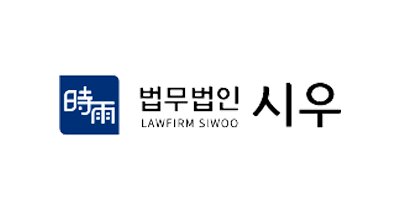Best Sex Crime Lawyers in Yeonje-gu
Share your needs with us, get contacted by law firms.
Free. Takes 2 min.
List of the best lawyers in Yeonje-gu, South Korea
About Sex Crime Law in Yeonje-gu, South Korea
Sex crime law in Yeonje-gu, South Korea, is governed under national statutes but enforced locally by police and prosecution authorities. Sex crimes comprise a broad range of offenses including sexual assault, harassment, indecent exposure, illegal filming, and distribution of intimate images without consent. The country strictly prosecutes such offenses under the Criminal Act and other relevant laws aimed at protecting the rights, dignity, and safety of individuals. Punishments can be severe, ranging from heavy fines to long-term imprisonment, and in some cases, the mandatory registration of offenders.
Why You May Need a Lawyer
Seeking legal advice is crucial in sex crime cases, whether you are accused or the victim. Common situations requiring a lawyer include:
- You are accused of a sex-related offense and face investigation or prosecution.
- You have been the victim of a sex crime and need legal protection and representation.
- You are being questioned by law enforcement agencies.
- There is a need to contest the evidence or the legality of investigation procedures.
- You wish to understand your rights and legal obligations during the process.
- You need assistance with filing a restraining order or seeking damages.
A lawyer can help navigate complex legal procedures, ensure your rights are protected, and provide an objective perspective during emotionally turbulent times.
Local Laws Overview
Sex crime laws in South Korea apply nationwide, including Yeonje-gu, but the way they are enforced can differ by locality. Key aspects include:
- The Criminal Act outlines offenses like rape, sexual assault, and indecent acts by compulsion.
- The Act on Special Cases Concerning the Punishment, etc. of Sexual Crimes strengthens punishments for certain sex crimes and enforces mandatory reporting in some cases.
- The Act on Prevention of Domestic Violence and Protection, etc. of Victims offers protections especially relevant in cases involving family or intimate partners.
- Strict legal provisions exist against the filming, possession, or circulation of intimate images without consent, in response to rising digital sex crimes.
- The Sex Offender Registration and Notification Act requires certain convicted offenders to be registered and monitored post-release.
- Local police collaborate with national agencies to provide prompt investigations and victim support.
Both accusers and accused have clear legal rights, including the right to counsel, the right to remain silent, and the right to a fair investigation and trial.
Frequently Asked Questions
What constitutes a sex crime in Yeonje-gu, South Korea?
A sex crime includes any illegal act of a sexual nature, such as sexual assault, harassment, rape, illegal filming or distribution of sexual material, and any act that violates the sexual autonomy of another person.
How are victims of sex crimes protected?
Victims are entitled to confidential reporting, protection from retaliation, legal assistance, counseling services, and, in some cases, police protection or restraining orders against perpetrators.
What should I do if accused of a sex crime?
Immediately consult a lawyer before making any statements to police. Cooperate with law enforcement, but ensure you understand your rights and avoid making self-incriminating remarks without legal counsel present.
Are sex crime trials public?
Some sex crime court proceedings may be closed to the public to protect victim confidentiality, especially in cases involving minors or particularly sensitive details.
How long does a case investigation usually take?
This varies depending on case complexity but initial investigations can last several weeks to months. Legal proceedings may take longer, particularly if the case goes to trial.
Can false accusations be prosecuted?
Yes, knowingly making a false accusation is a criminal offense in South Korea and can result in prosecution and penalties for the accuser.
Is there a statute of limitations for sex crimes?
Limitations vary depending on the severity of the offense. For serious crimes, such as sexual assault of minors, the statute is long or may not apply at all. Consult a lawyer for specific cases.
What evidence is typically used in sex crime investigations?
Common evidence includes victim statements, witness testimonies, forensic results, digital communications, CCTV footage, and physical evidence such as clothing and medical reports.
Can I be detained during an investigation?
Yes, if police believe there is sufficient reason, suspects can be detained for questioning. However, there are clear limits to the duration and procedures, and suspects have the right to legal counsel.
What penalties can result from a conviction?
Penalties range from fines and probation to imprisonment that can extend for many years depending on the offense. Mandatory sex offender registration and electronic monitoring may also be imposed.
Additional Resources
If you require support or information regarding sex crimes in Yeonje-gu, consider reaching out to these resources:
- Yeonje-gu Police Station: Handles criminal reports and initial investigations.
- Busan Metropolitan City Victim Support Center: Offers counseling, legal guidance, and victim protection.
- Korean Legal Aid Corporation: Provides legal assistance to those unable to afford private attorneys.
- Ministry of Gender Equality and Family: Implements policies and provides support for victims of sexual violence.
- Emergency Hotlines: 112 for police, 1366 for women and family crisis support.
Next Steps
If you or someone you know is involved in a sex crime case in Yeonje-gu, South Korea:
- Do not panic - remain calm and gather any documents or evidence related to the situation.
- Contact a qualified criminal lawyer with experience in sex crimes. Many legal professionals offer confidential consultations and can advise you on immediate actions.
- If you are a victim, seek support from local victim assistance centers or law enforcement agencies without delay.
- Follow your lawyer’s advice regarding communications with police, prosecutors, or other parties.
- Keep records of all events, communications, and evidence pertaining to your case.
Access to knowledgeable legal assistance and support services is critical. Acting promptly and diligently will ensure your rights and interests are fully protected during the legal process.
Lawzana helps you find the best lawyers and law firms in Yeonje-gu through a curated and pre-screened list of qualified legal professionals. Our platform offers rankings and detailed profiles of attorneys and law firms, allowing you to compare based on practice areas, including Sex Crime, experience, and client feedback.
Each profile includes a description of the firm's areas of practice, client reviews, team members and partners, year of establishment, spoken languages, office locations, contact information, social media presence, and any published articles or resources. Most firms on our platform speak English and are experienced in both local and international legal matters.
Get a quote from top-rated law firms in Yeonje-gu, South Korea — quickly, securely, and without unnecessary hassle.
Disclaimer:
The information provided on this page is for general informational purposes only and does not constitute legal advice. While we strive to ensure the accuracy and relevance of the content, legal information may change over time, and interpretations of the law can vary. You should always consult with a qualified legal professional for advice specific to your situation.
We disclaim all liability for actions taken or not taken based on the content of this page. If you believe any information is incorrect or outdated, please contact us, and we will review and update it where appropriate.










